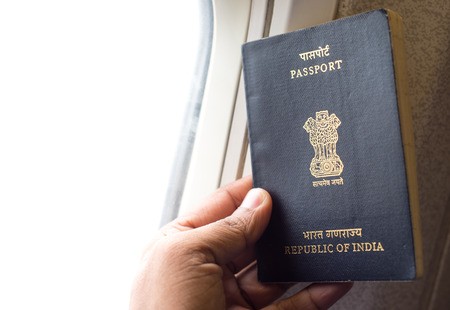
Photo Credit: Gage Skidmore.
On Tuesday, the US voted Donald Trump into office. Great. Fine. Let’s cut to the chase: What the hell does it mean for Indian startups?
The great thing about US elections is that they take place in November, while the president-elect takes office in January, leaving everyone to ponder that question for a glorious two months. Indian startups are no exception, but the consensus seems to be “so far, so good.”
“As far as India is concerned, I think a Trump Presidency, on the balance, may well play out to our advantage,” said Indian Angel Network co-founder Saurabh Srivastava in a statement.
we are not on the ‘target list.’
“[Donald Trump’s] views on India are not unfavorable and we are not on the ‘target list.’ He may well tilt the balance vis a vis China and Pakistan,” he continued.
Trump’s plan for his first 100 days in office, traditionally considered a tone-setting period for a presidency, include the US officially labeling China a “currency manipulator” and, in general, attempting to push American business back onto US soil, which will make outsourced labor more difficult. But unlike China and Mexico, India does not get a call-out in the plan, which seems to be to the country’s benefit.
Of course, campaign promises, particularly those concerning the first 100 days, are tentative at best. US presidents tend to make a hard-stuck effort to keep two-thirds of their campaign promises (give or take study-specific definitions of “promises” and “keep”). Those promises are notoriously hard to keep and have lasting effects on presidents in office.
See: Thanks to Donald Trump, China just won the global green technology sector
Trump’s brain drain

Photo credit: sahilu11 / 123RF.
What doesn’t get a mention on the list but has gotten a mention on the campaign trail is non-immigration visas – namely, the US H-1B visa that allows US employers to temporarily employ workers from overseas. Trends suggest that they’ll become increasingly hard to get, which is ticking off Silicon Valley (where, by the way, 44 percent of startups have an immigrant founder). In the meantime, startups in India are rubbing their hands in glee.
“Trump’s win would catalyze into India’s brain gain if US adopts more stringent immigration policies. These are, indeed, happy times for India!” said Mayank Bhangadia, Roposo co-founder and CEO, in a statement.
Tougher immigration policies mean that it’s going to be even harder for Indian techies to find work in the country, which may send more of them home after a US education (Trump vaguely supports international students in the US).
If Trump implements his campaign promises, Indian startups may gain enough appeal to jumpstart that process.
In March, I spoke with BrainGain, which connects international job-seekers with visa-sponsored jobs in developing economies. “The [reverse brain drain] trend still hasn’t really started,” he told Tech in Asia. “If you had to equate it back to startups, it’s in the early adopter phase right now.” While plenty of US-educated talent has moved back to India for work as compared to five to 10 years ago, India’s startup ecosystem hasn’t emerged as a specific motivator.
Indian students abroad have perhaps read about the growth in the country, but the extent of growth the sector is experiencing hasn’t really come across. “As a whole, it’s not still largely appealing,” he explained.
Concerns include Indian startups not being able to afford the salary recent grads would like. However, even back then, Troy noted that laws around the H-1B visa were tightening, while opportunities around the world were opening up.
If Trump implements his campaign promises, Indian startups may gain enough appeal to jumpstart that process.
See: The startup that helps get you a US talent visa and save thousands of dollars
The grain of salt
Honestly, it’s hard to separate out which policies were meant to answer questions about foreign trade and investment from those meant to garner the Indian American vote. Asian American voting power has doubled over the past 10 years, serving as a swing population vote in three oft-mentioned battleground states. This year, for the first time ever, elected Asian American officials were invited to speak at a US political convention.
A voting receipt that’s made its way around the internet shows Hindi as an official language on Chicago ballots, where it’s been listed after Spanish and Chinese since 2012. Parts of Trump’s campaign for Indian American voters have also gone viral. Meanwhile, Indian American voters raised a reported US$10 million for Hillary Clinton’s campaign (the Trump campaign did not disclose the amount raised on his side).
Trump’s loose-cannon style of campaigning has led us to expect anything and everything from the US’ new president-elect. However, if that same campaign has taught the world anything, it’s that he’s got an uncanny way of making things happen.
This post A Trump presidency could be just what Indian startups need. Seriously. appeared first on Tech in Asia.
from Tech in Asia https://www.techinasia.com/indian-startups-might-need-donald-trump-seriously
via IFTTT
No comments:
Post a Comment